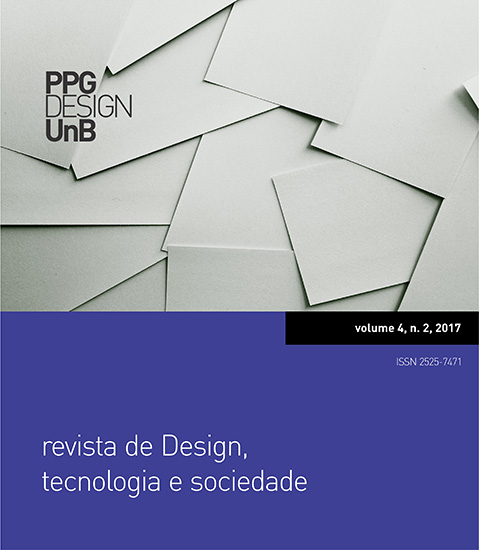One step forward and two steps back: the female aggression on gamers’ context and the spaces that game design occupies
Abstract
In 2015, the gaming industry earned $ 22.41 billion in the United States only, overriding the film and music industries. Commonly understood as a male universe, the game industry has seen the growth of women's presence in games over the last years - according to recent data, 51% of Brazilian game players are women. Taking the perspective of consumer culture theories, the authors perform a content analysis on data collected in a survey to understand the main mechanisms of discrimination to which female gamers are exposed. From the results, it is understood that the industry still fails to represent women in their games, inserted in a sociocultural context of masculine dominance, in which the game design needs to act beyond the narrative and visual aspects.
Downloads
References
BABBIE, E. 1999. Métodos de pesquisa de survey. 1.ed. Belo Horizonte, MG: edições UFMG.
BELK, R. W. 2014. Extended Self in a Digital World. Journal of Consumer Research, v. 40, n. 3, p. 477”“500.
CASTILHOS, R., ROSSI, C. A. 2009. Subindo o morro: consumo, posição social e distinção entre famílias de classes populares. IN ROCHA, Angela & SILVA, Jorge Ferreira (org.). Consumo na base da pirâmide: estudos brasileiros. Rio De Janeiro: Mauad.
COVA, B., COVA. V. 2001. Tribal aspects of postmodern consumption research: the case of French in-line roller skaters. Journal of Consumer Behavior, v.1, 1, p. 67-76.
DE MUL, J. 2011. Redesigning design. In: VAN ABEL, Bas et al. (org.). Open Design Now: Why Design Cannot Remain Exclusive. Amsterdam: BIS publishers.
DOUGLAS, M., ISHERWOOD, B. 2006. O mundo dos bens. Rio de Janeiro: UFRJ. p. 51-62; 101-118.
Entertainment Software Association. 2015. Essential facts about the computer and video game industry. Disponível em . Acesso em 17 de agosto de 2017.
GALDI, S.; MAASS, A.; CADINU, M. 2014. Objectifying Media: Their Effect on Gender Role Norms and Sexual Harassment of Women. Psychology of Women Quarterly, v. 38, n. 3, p. 398”“413.
GIACCARDI, E. 2005. Metadesign as an Emergent Design Culture. Leonardo, v. 38, n. 4. p. 342-349.
HUNICKE, R., LEBLANC, M., ZUBEK, R. 2004. MDA: A formal approach to game design and game research. In: Proceedings of the AAAI Workshop on Challenges in Game AI. p. 04-04.
McCRACKEN, G. 2003. Cultura e consumo. Rio de Janeiro: Mauad. p. 99-120
MILLER, D. 2013. Trecos, troços e coisas. Estudos antropológicos sobre a cultura material. Rio de Janeiro, Zahar. p. 21-105.
MORAES, R. 1999. Análise de conteúdo. Revista Educação, Porto Alegre, v. 22, n. 37, p. 7-32.
NIELSEN, D. 2015. Identity Performance in Roleplaying Games. Computers and Composition, v. 38, p. 45”“56.
PESQUISA GAME BRASIL. 2017. Pesquisa Game Brasil 2017. Disponível em . Acesso em 15 de agosto de 2017.
RAY, S. G. 2004. Gender inclusive game design. Expanding the market, v. 1.
SEO, Y.; BUCHANAN-OLIVER, M.; FAM, K. S. 2015. Advancing research on computer game consumption: A future research agenda. Journal of Consumer Behaviour, v. 14, n. 6, p. 353”“356.
SEO, Y.; JUNG, S.-U. 2014. Beyond solitary play in computer games : The social practices of eSports. Journal of Consumer Culture, v. 0, n. 0, p. 1”“21.
Downloads
Published
How to Cite
Issue
Section
License
Authors retain the copyright and grant the journal the right of first publication, with the work simultaneously licensed under the Creative Commons Attribution License which allows the sharing of work with acknowledgment of authorship and initial publication in this journal.



